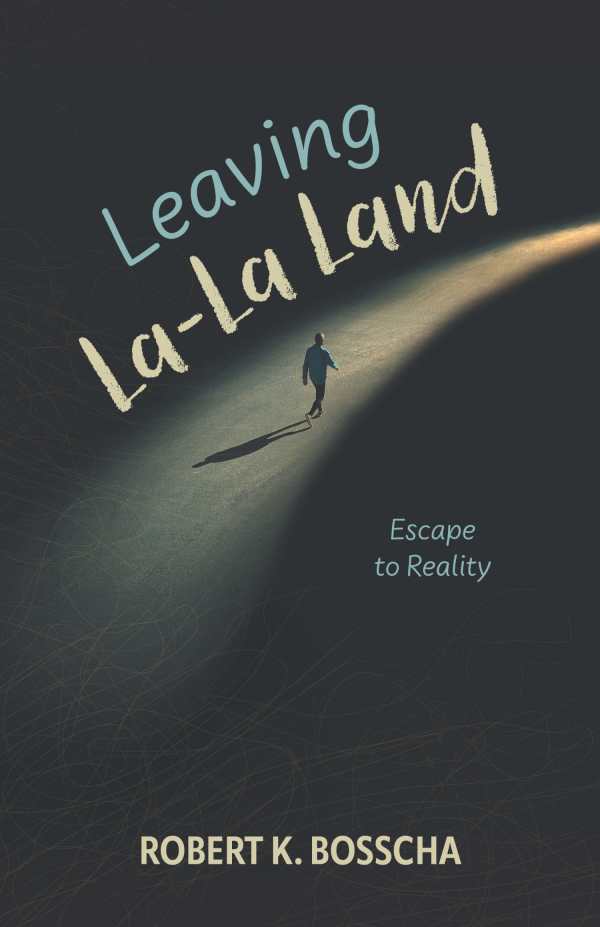Leaving La-La Land
Escape to Reality
Exploring themes including memory loss, muscle degeneration, and emotional flatness, Leaving La-La Land is a sometimes surreal memoir about recovering from a medical emergency.
Robert K. Bosscha’s reflective memoir Leaving La-La Land is about a harrowing diagnosis and the slow, uncertain path toward partial recovery.
After Bosscha experienced a series of seizures, hallucinations, and complete cognitive collapse, he wound up restrained in a hospital bed, unable to recognize his surroundings. Thus, this memoir follows his reconstruction of his consciousness alongside explorations of how serious brain dysfunctions fracture one’s sense of self. Bosscha writes about losing and reclaiming his mental and physical capacities, eschewing clinical terms in favor of memories, dreams, vivid and internal “e-dreams,” and post-hospital reflections, illustrating the toll the condition took on his identity, cognition, and dignity. Recollections from others are incorporated as well.
The book alternates between objective summaries of Bosscha’s hospitalization and surreal, often symbolic dream sequences. Each chapter adds a new layer to his disorientation and healing process, exploring themes including memory loss, muscle degeneration, and emotional flatness. Though Bosscha’s personal perspective dominates, the material is organized with the clear secondary intent to show how he lost and rebuilt the foundations of his identity. Short commentaries in shaded boxes appear throughout to ground this mixed narrative; they include additional, rearward-gazing insights on the recovery process.
Throughout, the idea that illness is as much an existential reckoning as a physical breakdown reigns. Bosscha explores this using four personas: his pre-hospital self, the unresponsive hospital version of himself who was observed by others, an emotional dream-state version of himself who lives in an alternate reality, and as his current self, attempting to make sense of it all. By tracking these versions of Bosscha, the book explores the philosophical implications of memory, consciousness, and what it means to be alive when awareness is compromised.
The narration is vulnerable but is also marked by dry humor as it reflects on personal unraveling and rediscovery of oneself. Still, while pointed reflections on the limitations of standard treatments, on misdiagnoses, and gaps in patient care appear to expand the book’s perspective, the book’s e-dream scenes are its most memorable. Strange and cinematic, they wind through imagined experiences aboard ships, in underground Muay Thai gyms, and on mysterious hospital wings. Through them, Bosscha’s mind works to construct meaning amid chaos. However, while these scenes are distinctive, their frequency and length weakens their collective impact.
A philosophical memoir about post-illness discovery, Leaving La-La Land is about recovering a lost grip on reality.
Reviewed by
Kiana Curtis
Disclosure: This article is not an endorsement, but a review. The publisher of this book provided free copies of the book and paid a small fee to have their book reviewed by a professional reviewer. Foreword Reviews and Clarion Reviews make no guarantee that the publisher will receive a positive review. Foreword Magazine, Inc. is disclosing this in accordance with the Federal Trade Commission’s 16 CFR, Part 255.

